On the morning of December 10, 2024, the "Tax Road, Cross-Sea Journey" tax service investment theme event to Cambodia was successfully held in Haikou, under the guidance of the State Administration of Taxation and the General Administration of Taxation of Cambodia, hosted by the Hainan Provincial Taxation Bureau of the State Administration of Taxation, and co-organized by the Consulate General of the Kingdom of Cambodia in Haikou! The event was conducted in a combination of "online + offline" and the leaders and guests attending the event included: Representatives of tax officials from the international taxation line of the Hainan Provincial Taxation System, relevant tax officials from Cambodia and other countries, and representatives of enterprises from various provinces going to Cambodia for "going global" such as PDAEXSEA participated in the event.
Huang Suhua, Deputy Director of the International Taxation Department of the State Administration of Taxation
He Yungao, Party Committee Member and Chief Auditor of the Hainan Provincial Taxation Bureau of the State Administration of Taxation
Cao Qihuan, Deputy Director of the Overseas Taxation Department of the International Taxation Department of the State Administration of Taxation
Zhang Jin, Deputy Director of the International Taxation Agreement Department
Seng Cheaseth, Director of the Taxation and International Cooperation Department of the General Administration of Taxation of Cambodia
Deputy Director-General Sim Solin
Outh Sophany, Acting Consul General of the Kingdom of Cambodia in Haikou
Leader's Speech
He Yungao
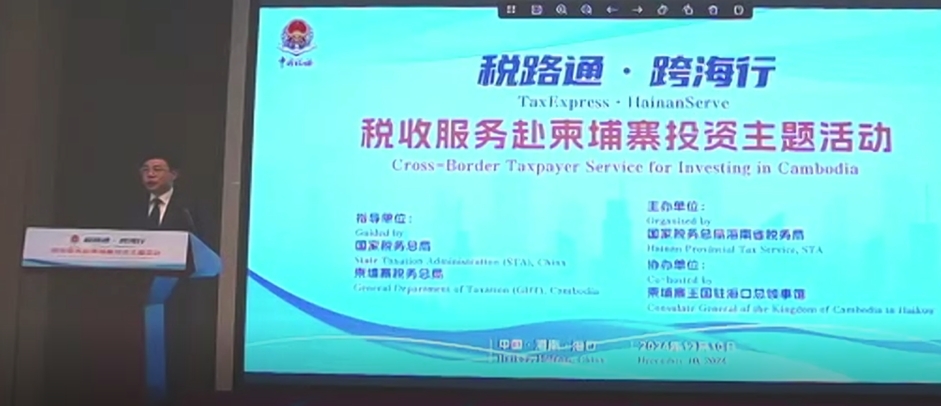
He Yungao
In his speech, Commissioner He Yungao sincerely thanked the General Administration of Taxation of China and Cambodia and the Consulate General of the Kingdom of Cambodia in Haikou for their strong support for this event. He hoped that this event would strengthen the cooperation between China and Cambodia in the field of cross-border tax services and help Chinese investors better grasp the opportunities of investing in Cambodia. At the same time, he also hoped that Cambodian investors would better understand the investment tax environment in Hainan and strengthen their confidence in investing in Hainan.
Huang Suhua
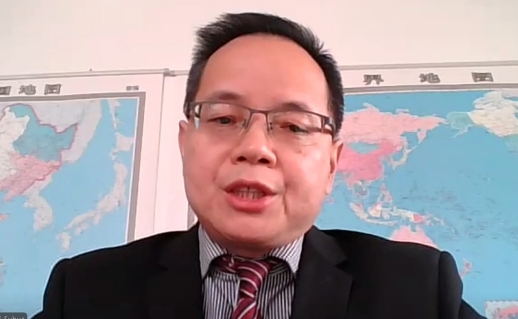
Huang Suhua, Deputy Director of the International Taxation Department of the State Administration of Taxation
Deputy Director Huang Suhua mentioned that taxation plays an important role in promoting bilateral economic and trade exchanges. It is an urgent desire of Chinese companies to understand Cambodia's tax system and better conduct business in Cambodia. It is hoped that this "Tax Road Cross-Sea Tour" event will benefit all Chinese companies that have invested in Cambodia or are about to invest in Cambodia.
Seng Cheaseth
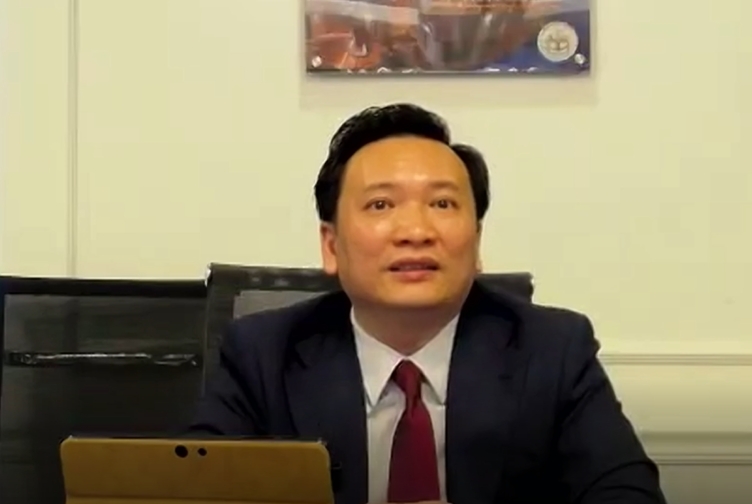
Seng Cheaseth, Director of the Tax Policy and International Cooperation Department of the General Department of Taxation of Cambodia
Director Seng Cheaseth specifically mentioned that as of now, Cambodia has signed and implemented double taxation avoidance agreements with 12 countries and regions, including Singapore, China, Thailand, Brunei, Vietnam, Indonesia, Malaysia, South Korea, Hong Kong Special Administrative Region of China, Macau Special Administrative Region of China, Turkey and Laos (not yet in effect). And actively negotiate with the Philippines, Japan, the United Arab Emirates, Morocco, Myanmar and France.
Overall, the Cambodian government has taken major measures to attract investors and create a favorable business environment. We look forward to seeing more Chinese companies better understand Cambodia's tax system through this event and enter the Cambodian market.
Introduction to Cambodia’s Tax System
柬Mr. Sin Sangnam, Director of the Tax Policy and International Cooperation Department of the Cambodian General Taxation Department, introduced Cambodia’s tax system and international cooperation in the tax system.
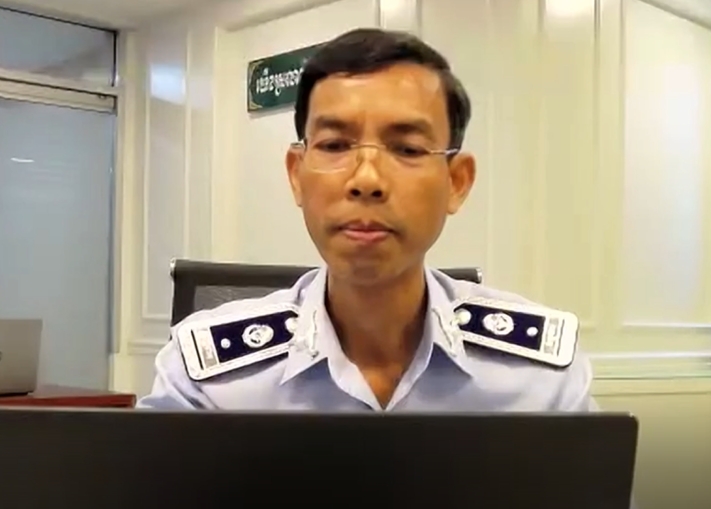
Mr. Sin Sangnam, Director of the Tax Policy and International Cooperation Department of the General Department of Taxation of Cambodia
It also provides a detailed introduction to Cambodia’s current main taxes: income tax, minimum tax, capital gains tax, withholding tax, value-added tax, etc.
Mr. Simsonnan mentioned that the government also provides a tax holiday of 3-9 years for QIP projects approved by the Development Council of Cambodia through the Investment Promotion Plan to attract foreign investment.
In addition to direct tax rate concessions, Cambodia has also implemented a series of tax exemption and tax refund policies. For example, exports of goods and certain services are exempted from value-added tax to support the development of export-oriented industries.
In terms of international cooperation, Cambodia has actively signed double taxation agreements with many countries, such as the agreement signed with China in 2016, aiming to avoid double taxation and promote economic cooperation and investment. The signing of these agreements not only enhances Cambodia's international competitiveness, but also attracts more foreign investment.
Mr. Sing Sangnam then answered relevant tax-related questions from relevant companies regarding the significant changes in Cambodia’s new investment law, the withholding and payment of service tax, and other issues.
Exchanges between Chinese tax authorities and enterprises 1 Tax Services Going Global Cao Qihuan, Deputy Director of the Overseas Taxation Department of the International Taxation Department of the State Administration of Taxation, gave a detailed introduction to the "Shuilutong" cross-border service brand in his keynote speech entitled "Tax Services Going Global". 2 Introduction to the China-Cambodia Tax Treaty Zhang Jin, Deputy Director of the International Tax Agreement Department, gave a detailed introduction to the China-Cambodia Tax Agreement in his keynote speech entitled "Introduction to the China-Cambodia Tax Agreement". 3 Business representatives share their experience in investing in Cambodia Su Yi, Chief Accountant of CDFG International Ltd., first gave a brief introduction to the overall national situation of Cambodia and the good international relations between China and Cambodia. 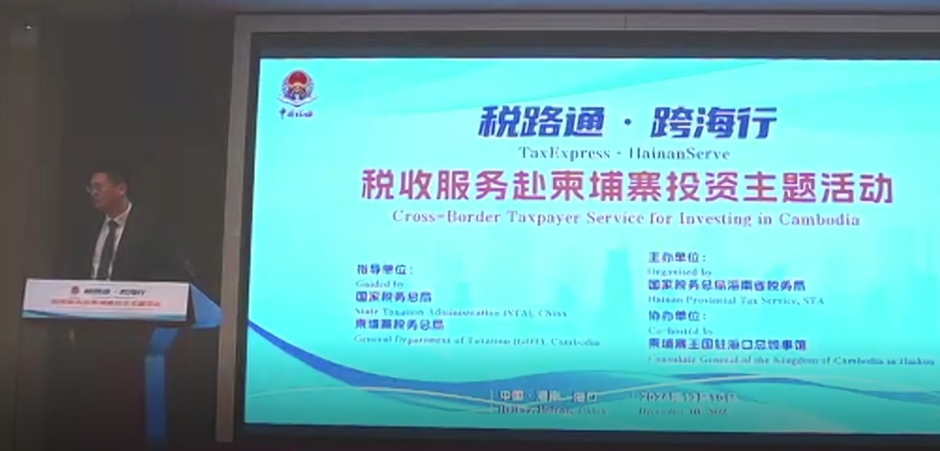
Over the past year, under the overall guidance of the State Administration of Taxation, local tax departments have relied on the construction of the "Tax Road" sub-brand, focused on serving high-quality "bringing in" and high-level "going out", innovated cross-border tax service measures, exerted the synergy of the brand matrix, and accelerated the construction of a cross-border investment tax service system.
At present, the "Tax Road Tax Service 'Belt and Road'" column has published a total of 105 country (region) investment tax guides, 31 overseas tax cases, 223 global tax information, 56 cross-border questions and answers, and 2 special tax guidelines.
Next, the tax department will continue to play and expand the "Tax Road" cross-border tax service brand matrix effect, pragmatically promote the "Tax Road" brand building, help "going out" enterprises make good use of tax policy tools, and contribute tax power to serve high-quality development and high-level opening up.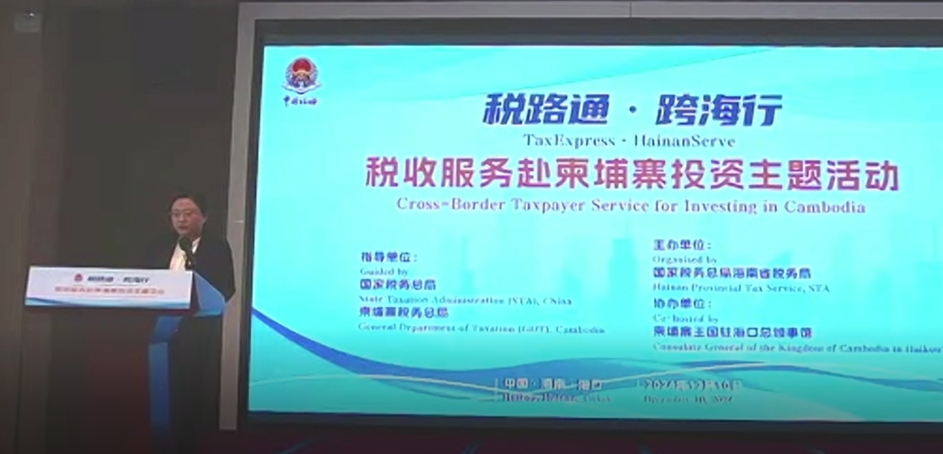
The Agreement between the Government of the People's Republic of China and the Government of the Kingdom of Cambodia for the Avoidance of Double Taxation and the Prevention of Fiscal Evasion on Income was signed in Phnom Penh, Cambodia on October 13, 2016, and will come into effect on January 1, 2019.
The Agreement and the Protocol apply to personal income tax and corporate income tax in China, and to profit tax and wage tax including withholding tax, minimum tax, dividend distribution additional profit tax, and property income tax in Cambodia.
Deputy Director Zhang Jin emphasized that under the bilateral tax treaty, Cambodia's withholding tax on dividend distribution, loan interest, royalties and technical service fees will be reduced from 14% to 10%.
If Chinese companies treat the profit income of Cambodian companies as dividend distribution, they only need to pay 10% withholding tax. To enjoy the preferential withholding tax rate, enterprises must apply to the Cambodian State Taxation Administration. If the submitted documents are sufficient, the application will be approved within one week.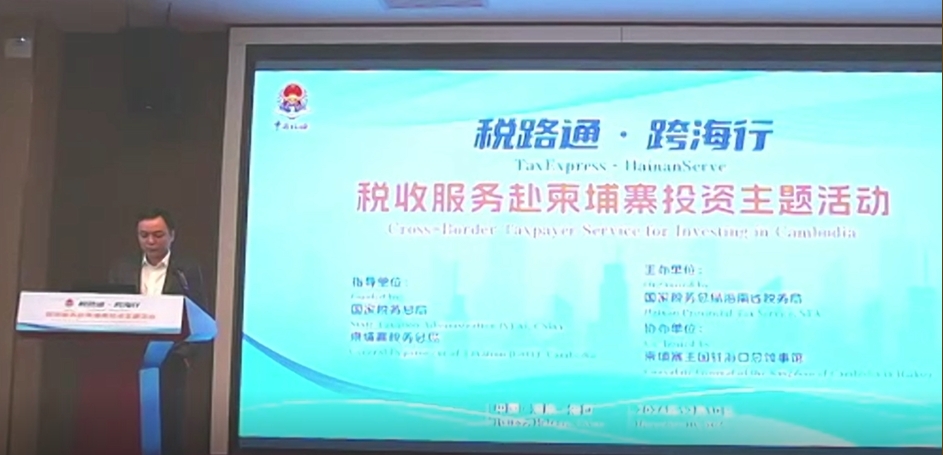
He said that as long as companies in Cambodia comply with local policies and actively integrate into local culture, they can maintain friendly relations with the local government and various departments, thereby promoting the integration and development of companies in the local area.
Tax agreements, permanent establishments, related transactions, tax compliance, and other topics that cannot be avoided when going overseas are also high-frequency words in tax disputes and tax penalties.
PDAEXSEA recommends that all companies going overseas should have a deep understanding of the host country's tax environment, tax laws and preferential policies when entering Cambodia or other overseas markets, understand and use international tax agreements, so as to help companies effectively enjoy tax exemptions and reduce cross-border transaction costs, and fulfill tax obligations in accordance with the law in daily operations and achieve legal and compliant operations, so as to go more steadily and further in the local area.
For more details on overseas expansion, please consult PDAEXSEA professional consultants:



